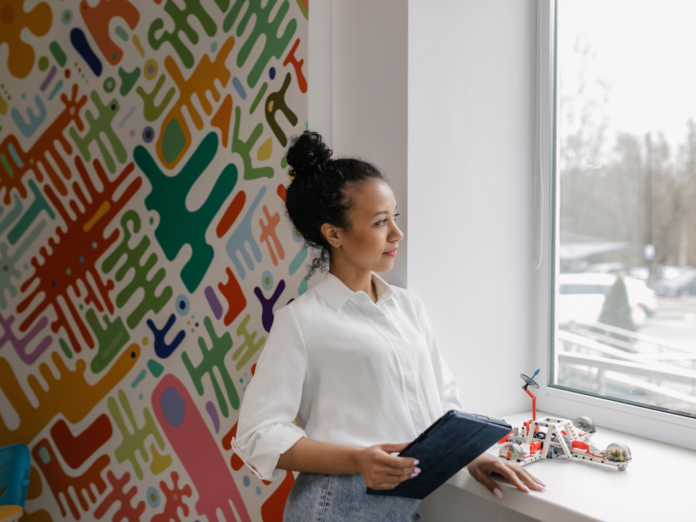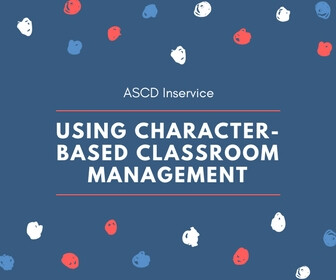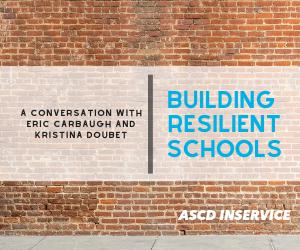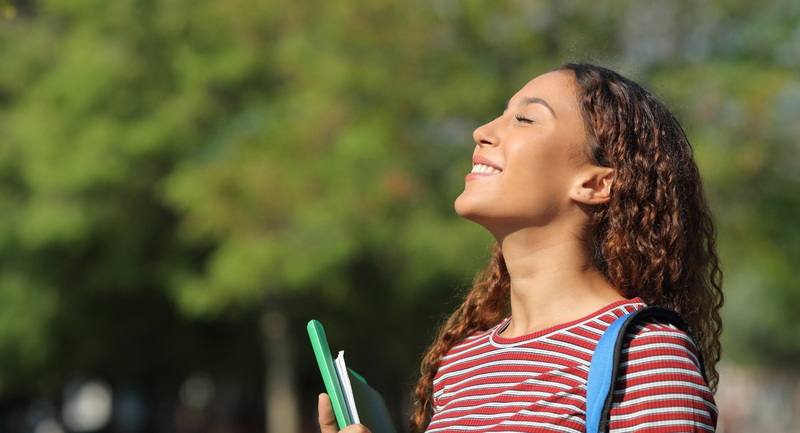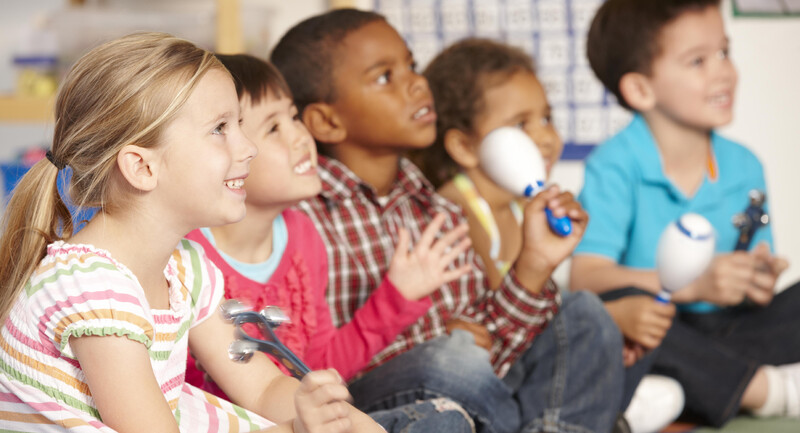By Noble Ingram
Allison Rodman is a professional development specialist and author of the book Personalized Professional Learning: A Job-Embedded Pathway for Elevating Teacher Voice (ASCD, 2019). Rodman will be presenting at ASCD’s Annual Conference, June 23-25, 2021. Plan to attend her session “Discovering Our PULSE: Facilitating Empowering Professional Learning Experiences” (#2315) on June 24 from 2:20-3:00 pm ET. You can participate live during this virtual event or access all presentations on-demand through July 25. Register now.
After an exhausting year, how can teachers shift from coping to rebuilding their emotional capacity?
The profession’s approach to educator wellness tends to focus on a false “recharge” rather than authentic “recovery.” We provide breaks through staff luncheons, yoga sessions, and informal chats with colleagues. However, we fail to take proactive steps to build social-emotional capacity and minimize burnout.
I recommend three key action steps educators can take this summer to (re)build their capacity:
- Attune: Take time to revisit your social-emotional core. When and where do you feel strongest? Where might you like to grow? Whether you dig into a personality or type indicator assessment like Myers-Briggs or simply engage in regular reflection, understanding yourself—including your sources of both joy and stress—is critical for social-emotional capacity building.
- Align: Ensure your practice mirrors your purpose. Educators absorbed a wide array of strategies, tools, and new responsibilities this past year. As you look to reset, consider which actions (both personal and professional) are moving you closer to your goals and which ones you may need to filter out to stay focused and feel fulfilled.
- Gain Perspective: Shift your frame of reference. Select one area where you would like to broaden your view and learn more. Connect with someone who can support your growth, read a book or article, engage in a virtual conference session, jump into a Twitter or Clubhouse chat. Take this opportunity to consider how you might approach or refine your work in ways that do not add to your workload, but rather enhance your impact.
What about school leaders—how can they support teacher well-being and social-emotional growth?
School leaders can support teacher well-being and social-emotional growth by avoiding the Band-aids, life preservers, recharge rotations, and pseudo-celebrations. These quick fixes offer bursts of recharge but do not foster true recovery. Instead, we need leaders who understand that the work of social-emotional capacity building—for both students and educators—is not as simple as a keynote, curricular program, or wellness day.
We need leaders committed to diagnosing educator needs, intentionally designing professional learning and capacity-building opportunities to address identified gaps, and working relentlessly to become “deliberately developmental organizations.”
What do you think is the most pressing challenge to educator wellness right now?
One of my biggest concerns about educator wellness as we head into the summer and next school year is that, if we are not careful, we will miss a powerful opportunity to reimagine educator roles across our systems. Well-intentioned leaders have an intense fear of “pushing too hard” right now, and as a result, are waiting to assess the landscape once students and teachers fully return to our physical spaces before making too many moves, particularly in the adult learning space.
My fear is that, if we miss this threshold moment, we will slip back into old patterns of copy machine jams, missed lunches, and bus duty. Habits—our ways of being, relating, and doing—are grounded in both spatial and temporal landmarks. Our old poor habits return just as quickly as the strong ones. We need to embrace this chance to re-envision how we might collectively learn in more innovative, sustainable, and personalized ways.
What should PD look like this fall with pandemic recovery in mind?
As we look ahead to fall, some approaches I have been highlighting for leaders and professional learning facilitators include:
- Mix Up the Guest List: We do not need every person in every session. Be intentional.
- Set Up the Right Kind of Chairs: Be mindful of format. Ensure it aligns to your function.
- Make It Easy to Mingle: Foster collision-rich environments that make it organic to gather together and socialize.
- Plan for the Worst-Case Scenario: “Doomsday” planning brings out the naysayers—and often, also our strongest solutions.
- Create Space for Reflection: Do not fill every minute. Collective pauses allow for processing and application.
For more on these approaches, educators can read my Eduplanet21 guest blog post or listen to my recent podcast episode with Steve Barkley.
Tell us about the session you’re leading at this year’s annual conference.
The ASCD Annual Conference is one of my favorite events every year, and I can’t wait to (re)connect with so many amazing educators!
As my session will illustrate, professional learning experiences offer an incredible opportunity to empower educators to stretch their practice. However, too often, these events are one-size-fits-all episodes. Together, with the participants, I will explore a professional learning design cycle focused on priming, ushering, launching, socially constructing, and extending the learning loop beyond face-to-face engagements. We will examine ways to promote social construction during professional learning and consider the integral role reflection plays in the growth process. Participants will leave with tools and processes to guide their professional learning planning and facilitation to craft true experiences—not just events.
What other speakers are you looking forward to seeing at the conference?
I am, admittedly, still working my way through all the learning opportunities. Wow! What an amazing collection of offerings. From Ruby Bridges to Bernice King and hundreds more, my calendar is completely blocked off, and I have a feeling I will be watching many of the recordings and sharing about them in the weeks that follow. Can’t wait and hope to “see” readers in my session!
